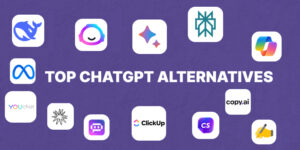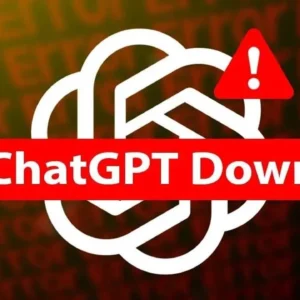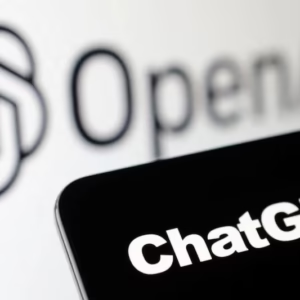
ChatGPT Took a Coffee Break. Don’t Panic, Here Are the Top Best
Let’s be honest, that sinking feeling when ChatGPT flashes an error message is real. That cursor blinks on an empty page, your deadline looms, and the AI assistant you’ve come to rely on has seemingly vanished into the digital ether. It’s frustrating, and it’s happening more often.
But here’s a thought: maybe it’s a good thing.
Relying on a single tool for anything is risky, and the AI world is exploding with incredible talent. The recent outages have simply forced us to look up and notice the fierce competition—a diverse lineup of ChatGPT alternatives that aren’t just clones. Some are arguably better for specific tasks. So, instead of waiting for OpenAI’s servers to get back on track, let’s go window shopping.
The Titans You Already Know (And Probably Use)
It should come as no surprise that the biggest names in tech have their own powerful horses in this race. Their main selling point is convenience; they live where you already work.
Google Gemini: The Know-it-All with a PhD in… You
If you live your life in a Google Doc or have a perpetually overflowing Gmail inbox, Google Gemini is a no-brainer. Think of it as the brainy assistant who has read every email you’ve ever received and can access the entire internet in real-time.
Where it truly shines is its synergy. Asking it to “summarize the key points from the last three emails from Jane and draft a polite response” feels like magic. Because it’s hooked into Google Search, its answers are fresh. While ChatGPT sometimes feels like it’s pulling from a slightly dated textbook, Gemini is reading today’s news. It’s not just an AI chatbot; it’s your personal Google-verse whisperer.
Microsoft Copilot: The Colleague Who Actually Helps
Microsoft Copilot is less of a standalone chatbot and more of a deeply integrated partner for anyone in the corporate world. If your day is spent wrestling with Excel formulas or trying to make a PowerPoint presentation look professional, Copilot is designed for you.
The real power is unlocked with a subscription, embedding it directly into Office apps. You can prompt it to “create a 10-slide presentation from this Word document” or “analyze this sales data and show me the top three trends in a graph.” It’s less about creative brainstorming and more about pure, unadulterated productivity. It’s the colleague who just gets the work done.
The Scrappy Innovators Nipping at OpenAI’s Heels
While the giants focus on integration, a pack of nimble startups are innovating on the core experience, offering unique features that make them compelling choices.
Claude: The Bookworm of the Bunch
If you’ve ever tried to feed a 100-page report to ChatGPT and watched it tap out, you need to meet Claude. Its superpower is its massive “context window.” In plain English, it can read and remember enormous amounts of text at once.
This is a game-changer for academics, lawyers, or anyone who has to digest dense material. You can upload entire research papers or contracts and ask complex questions about the content. It’s patient, thorough, and feels like it was built for serious, deep-dive work.
Perplexity AI: The Anti-Hallucination Machine
One of the biggest anxieties with AI is that it just… makes things up. Perplexity AI was seemingly created to solve this exact problem. It presents itself as a “conversational search engine,” and its killer feature is citations.
Every answer comes with footnotes linking directly to the sources it used. For students writing papers, journalists fact-checking a story, or anyone who needs verifiable information, Perplexity is a breath of fresh air. It trades some of ChatGPT’s creative flair for something much more valuable: trust.
Grok: The Smart-Aleck with Real-Time Intel
Leave it to Elon Musk’s xAI to create an AI with a personality. Grok is witty, a bit sarcastic, and, most importantly, plugged directly into the chaotic, real-time firehose of X (Twitter). When you need to know what’s happening right now or want an answer that doesn’t sound like it was written by a committee, Grok is your go-to. It’s the friend you text for unfiltered takes on breaking news.
So, Which One Should You Actually Use?
There’s no single “best” AI. The right choice is less about which model is technically superior and more about what you need to get done.
- For all-around use and Google integration: Stick with Gemini.
- For office productivity and data analysis: Copilot is your workhorse.
- For deep research on long documents: Claude is in a league of its own.
- For fact-checked, verifiable answers: Perplexity is the most reliable.
- For real-time info and a dose of personality: Have a chat with Grok.
The next time you see that dreaded “ChatGPT is at capacity” message, don’t close your laptop in despair. See it as an opportunity. Take one of these impressive rivals for a spin. You might just find an alternative that doesn’t just fill the gap, but actually fits your workflow even better.
Your Questions, Answered
Q: Seriously though, are any of these actually free? A: Yes, and generously so. The free versions of Gemini, Perplexity, and Claude are incredibly powerful and more than enough for most daily tasks. The paid tiers are usually for power users who need more advanced features or higher usage limits.
Q: I’m a programmer. Which one will help me code without giving me nonsense? A: While many can code, Microsoft’s Copilot is deeply integrated into coding environments like VS Code and is often praised by developers. Gemini also has a strong reputation for generating clean, useful code snippets.
Q: What about creating images? A: Many of these are getting in on the art game. Microsoft Copilot integrates with DALL-E 3 for image generation, and other platforms like Chatsonic are built with creative content, including images, in mind.



